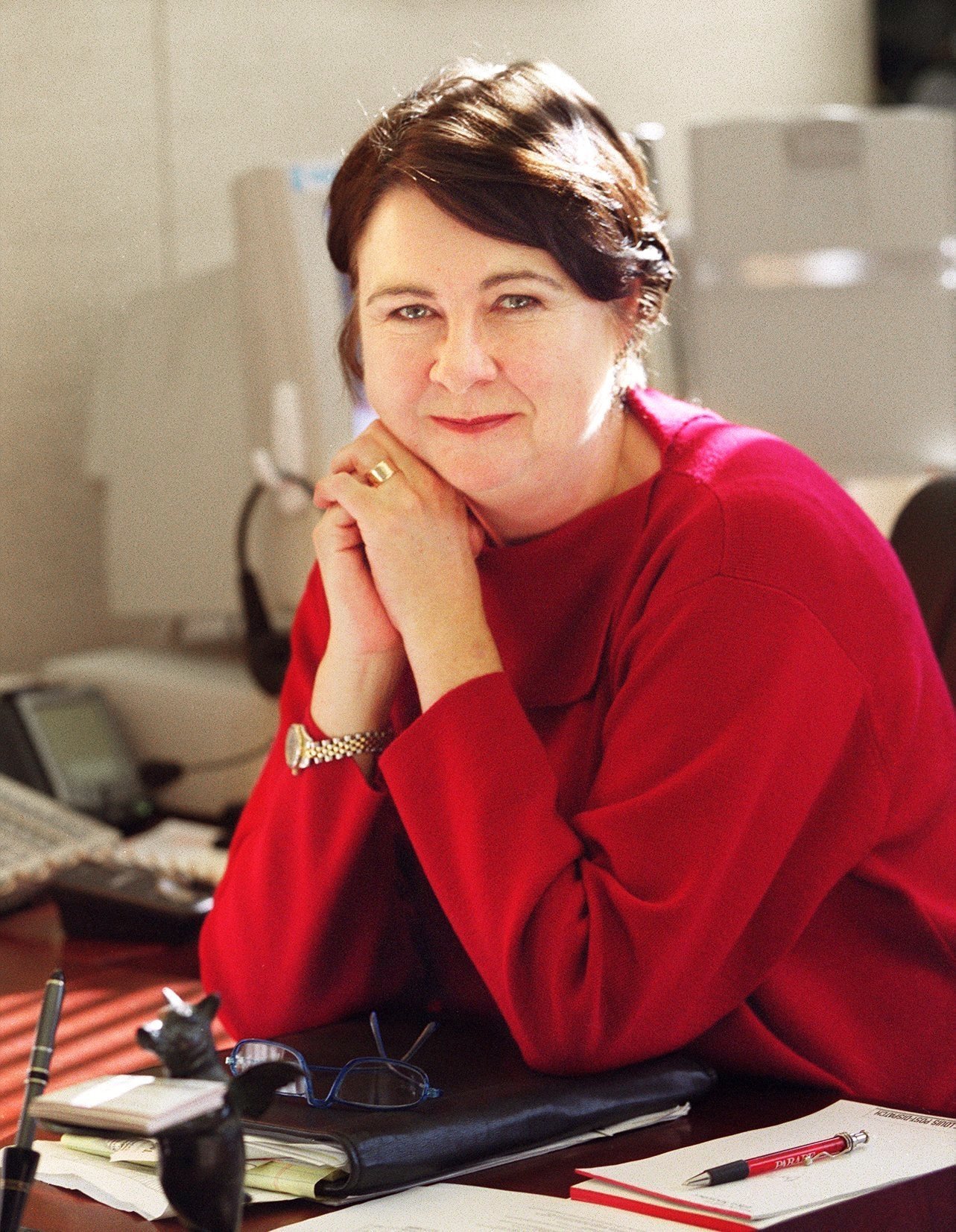Soeteber Remembered

PHOTO BY JERRY NAUNHEIM JR.
Newspapering was still a man’s world in the 1980s so I didn’t know what to make of my first female boss.
But a few things became obvious. She knew as much as I knew about how the city-that-works really works … and a lot more about the internal workings of the Chicago Tribune.
I was the younger by a few months, yet she had more energy, especially when making assignments. Her ideas could seem prosaic to a mid-career reporter, but she knew what had front page potential if aggressively and creatively pursued.
Most of all I remember her mastery of detail. Her election night staffing memoranda ran page after page, advising dozens of reporters and photographers where they needed to be, and by what exact minute they had to file so as to clear the copy desk in time to make our “final” edition.
Doping stories with her – the process by which reporters tell editors what they’ve got and editors tell reporters what they still need – was a game of 20 questions. But if you had the goods, she’d sell it hard at the 5 o’clock meeting where section editors offer their best stories for Page 1.
Ellen Soeteber had the goods. She moved up Tribune ranks as Metro editor, associate managing editor and deputy of the editorial page. The company sent her to South Florida to help run its newspaper there, yet none of us were surprised when later she was hired away as editor-in-chief of the St. Louis Post-Dispatch. It was a homecoming of sorts, Ellen having graduated from East St. Louis High … a fact that gave her “street cred” in our city room … and one that helps explain her lifelong support of minority as well as female journalists.
Ellen Soeteber died last June on the same day as the passing of former Tribune editor and publisher Jack Fuller, one of her mentors. She would have appreciated the irony … and, were she running the news desk, would have risen to the challenge from an editor’s perspective. Run the obits the same day, giving bigger play to Fuller? Nah. Best to hold the Soeteber RIP for a day and give both the measured play they deserve. She was canny that way.
How canny? Back in ’83 she walked up to my desk and asked if I’d go to an old-time saloon near Comiskey Park – Schaller’s Pump to be exact – for a color piece on what locals thought of the White Sox finally making the playoffs. I groaned and eye-rolled … but agreed. Whereupon she asked if I’d also go to Baltimore that weekend for a feature on their stadium’s neighborhood. Had I turned her down on Schallers, another reporter would have enjoyed those expense account crab cakes and playoff tickets.
Then there were all those Saturday mornings, 7 a.m. shift, chasing stories for the Sunday final. Often the big whoop was arrival around 9 a.m. of a stack of the Chicago Sun-Times “bulldog” Sunday edition. Almost always the competition bannered a Page 1 screamer about some investigation or revelation the Trib didn’t have. So Ellen always bought coffee for the copy kid who distributed those papers, and in return he or she agreed to delay delivering a copy to the office of Sunday Editor Bill Jones. She used those precious minutes to evaluate the competition’s story and outline a strategy to either “knock-down” or “recover” the S-T bombshell. I don’t think Jones, another fine editor who died too soon, ever caught on.
In such ways were trails blazed for women in the newsroom. Yet she paid a price, as all pioneers do. There were those damnable cigarettes and other nervous ticks. Of course there were. She asked herself to be twice-as-good and, more often than not, she pulled it off. Not long after Ellen moved on, one of her mentees, Anne Marie Lipinski, became the Tribune’s first female editor-in-chief.
Newspapering has its problems, sure, but thanks to Ellen and her professional sisters, it is no longer a man’s world … and much the better for it.
Author’s note: Following 27 years at the Trib, John McCarron now teachers, consults and writes on urban affairs.
Postscript: A number of Ellen’s colleagues and friends from the Trib, Sun-Sentinal and Post-Dispatch are making gifts in her memory to the Alfred Friendly Foundation, which brings aspiring third-world journalists to the U.S. to see how we do it here. Ellen was a board member and brought lots of Friendly fellows into the newsrooms she led. You can donate online at http://presspartners.org/support/individual-gifts/ or send a check to: Alfred Friendly Press Partners; 310C Reynolds Journalism Institute, Columbia, MO 65211.
Questions? Email jackie.combs.nelson@gmail.com